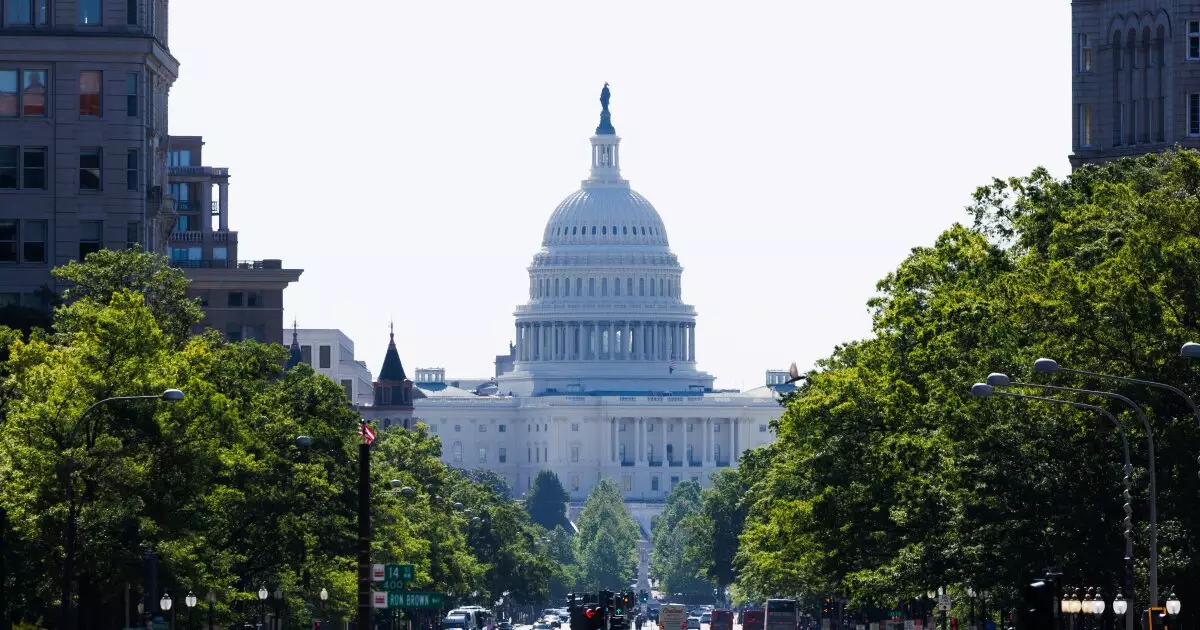In an era of economic uncertainty, the recently proposed tax plan by the House Ways and Means Committee is ringing alarm bells, especially for middle-class Americans. The draft, which was leaked late last week, aims to extend the provisions of the 2017 Tax Cuts and Jobs Act but paints a troubling picture. With a staggering potential cost exceeding $5 trillion and an evident lack of a cohesive strategy for revenue offsets, one can’t help but question the responsibility of lawmakers in such critical economic decisions. This is a time when prudent fiscal policy should be paramount, yet we are witnessing an alarming trend toward profligate spending.
The Illusion of Tax Cuts
While proponents tout the tax changes as pro-family and pro-worker, it’s essential to dissect what these terms mean in practice. Chair Rep. Jason Smith boldly states that these tax provisions are at the core of Trump’s economic philosophy; however, they seem to ignore the broader implications on the national debt and economic stability. The projected $5 trillion cost indicates a return to an irresponsible approach reminiscent of past fiscal policies that jeopardized our financial future. Extending tax benefits without substantial financing or offsets only perpetuates the cycle of deficit spending, which disproportionately impacts the middle class in the long run.
The Silent Specter of SALT
The absence of any provisions addressing the state and local tax deduction (SALT) cap is particularly concerning. Lawmakers from high-tax states are set to convene a meeting, eager to see meaningful changes before they will support the reconciliation bill. This impasse not only signifies a division within the party but also highlights the complexities of taxation in a country that prides itself on fairness and equity. Those who fall under the SALT cap are primarily middle-class families and homeowners, yet they remain pawns in a high-stakes game that prioritizes political maneuvering over economic realities. It is a glaring oversight by the committee, one that could alienate a significant voter base.
The Broader Economic Impact
The Committee for a Responsible Federal Budget has raised red flags about the bill’s potential to exacerbate our deficit. Their warning that the draft could contribute an additional $5 trillion to primary deficits through 2034 is more than just a concerning statistic; it is a clarion call for fiscal vigilance. Should lawmakers proceed without a calculated plan for offsets, the ramifications may well feel like a tide of economic uncertainty crashing down on the middle class. Indeed, their voices should matter, as the damage inflicted today will shape the financial landscape for future generations.
An Unfathomable Blind Spot
Perhaps the most troubling aspect of this new tax proposal is the apparent blind spot in acknowledging the current economic environment. With Treasury Secretary Scott Bessent already warning that the nation may run out of funds to meet its obligations by mid-July, one has to wonder how serious the lawmakers are about maintaining fiscal discipline. Instead of casting a net for fiscal emergency, Congress seems intent on pushing a bill that could lead to inflated debts before they even address raising the debt ceiling. This sequence of events paints a portrait of a government seemingly uninformed about the gravity of its own decisions.
In an age marked by economic hardship for many, the proposed tax bill does little to demonstrate an understanding of the needs and concerns of the average American. Instead of fostering a sustainable economic plan, it appears designed to inflate the deficit further and prop up benefits that may yield limited tangible benefits for the middle class. While the intentions behind the proposal may be framed as “pro-family” and “pro-worker,” the execution reflects a troubling detachment from fiscal realities. If lawmakers don’t recalibrate their approach soon, they risk alienating the very constituents they aim to support, leading us down a precarious path fraught with economic instability.


Leave a Reply